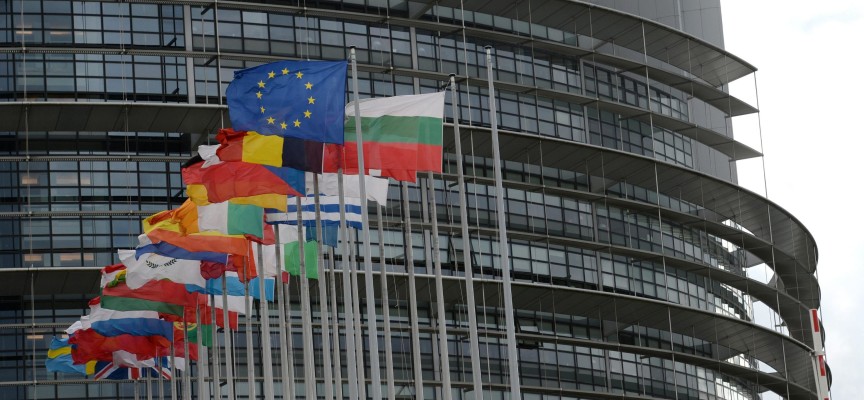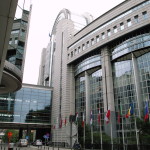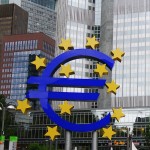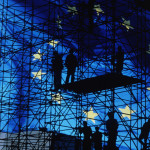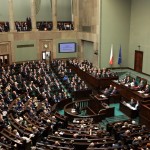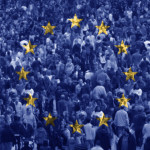Come on, do not start laughing. No one seems to have noticed, but the euro zone is starting to go strong and, sooner or later, the positive effects of this growth will be felt on citizens. Maybe even those who today are angry and want to vote 5-Stars Movement, Marine Le Pen or the Alternative for Germany.
For now, pessimism reigns supreme. Between the immigration crisis, the spectre of populism and Brexit sword of Damocles, not to mention the mystery Trump, the atmosphere is not nice in the corridors of Brussels and in the streets of Paris, Berlin or Rome.
In European capitals talking is only about how to avoid the worst, with the usual recipe: either “more integration” – even if no one wants the United States of Europe – or a “multi-speed” Europe, but actually this already exists and does not solve much.
Trump’s Americans add fuel to the fire, predicting improbable implosions of the euro or a forced way out of Greece – deplorable attitudes from historical allies, united by decades under the protection of NATO and by very important commercial relations.
But all this is “political fuss”. Better to focus on facts, and not the “alternative“ ones much beloved by the US President.
Here are some true facts: in 2016, the euro-zone grew faster than the US, 1.7 percent versus 1.6 percent; European GDP has been positively growing for 14 consecutive quarters; unemployment is low and companies are hopeful in the future.
But it’s not peaches and cream everywhere. Successful stories such as Spain, which is growing at more than 3 percent per year, are mixed with nightmares like poor Italy, which is struggling to stay afloat.
In any case the overall picture is very different from the popular and populistic image of an economic blockade drifting with sclerotic labour markets and incapable governments.
The problem is that few defend the “European tiger”, partly because it’s not convenient to praise the euro-zone. It’s instead really convenient for the national leaders and opposition parties to attack Brussels when things go wrong at home while European bureaucrats are either verbose (the Commission) or uncommunicative (the European Central Bank).
When I asked a senior official in Brussels who was, according to him, the best spokesperson of European optimism, he said: Klaus Regling, a nice German gentleman who is head of a European financial agency but not really a big speaker or a man on everyone’s lips.
The great statements on Europe should come from Angela Merkel, from Mario Draghi as well as from François Hollande, Jean-Claude Juncker and Paolo Gentiloni.
They should be the heirs of Jacques Delors, Francois Mitterand and Helmuth Kohl. We have Regling instead.
If economy continues to grow this way, perhaps oratory will be superfluous. Maybe people will realize that the situation is improving and will cease to believe in the simplistic answers of populists.
But for the moment the polls show that many voters do not see, or refuse to see, the benefits of this recovering economy.
So, instead of talking about a Europe “on the brink”, or on a very low economic level, it’s about time the leaders of this continent so mistreated explained what’s working. Because something that works exists.
Until the truth is self-evident, politicians and central bankers will need to act as its megaphone.
Francesco Guerrera – La Stampa/Origami – nr. 66/2017
No, dai, non mettetevi a ridere. Non sembra essersene accorto nessuno, ma la zona euro sta incominciando a tirare e, prima o poi, gli effetti positivi di questa crescita si faranno sentire sui cittadini. Magari anche quelli che oggi sono arrabbiati e vogliono votare 5 Stelle, Marine Le Pen o l’Alternativa per la Germania.
Per ora il pessimismo regna sovrano. Tra la crisi dell’immigrazione, lo spettro del populismo e la spada di Damocle di Brexit, per non parlare dell’incognita Trump, non si respira una grande aria nei corridoi di Bruxelles e nelle piazze di Parigi, Berlino o Roma.
Nelle capitali europee si parla solo di come evitare il peggio, con le solite ricette: o “è più integrazione” anche se gli Stati Uniti d’Europa non li vuole nessuno – o l’Europa a “più velocità” che però in realtà già esiste e non risolve granché.
Gli americani di Trump buttano benzina sul fuoco, predicendo improbabili implosioni dell’euro o fuoruscite forzate della Grecia – atteggiamento deplorabile da parte di alleati storici, uniti da decenni sotto l’egida della Nato e da relazioni commerciali molto importanti.
Ma tutto ciò è “rumore politico”. Meglio soffermarsi sui fatti, e non parlo di quelli “alternativi” tanto amati dal Presidente Usa.
Ecco qualche fatto vero: nel 2016 la zona-euro è cresciuta più velocemente degli Usa, 1,7% contro 1,6%; il Pil europeo è in crescita positiva da 14 trimestri consecutivi; la disoccupazione è bassa e le aziende sono speranzose nel futuro.
Non sono tutte rose e fiori. Storie di successo come la Spagna, che sta crescendo a più del 3% l’anno, si mischiano a incubi come la povera Italia, che fa fatica a stare a galla.
Ma la visione d’insieme è molto diversa dall’immagine popolare e populista di un blocco economico alla deriva con mercati del lavoro sclerotici e governi incapaci.
Il problema è che sono in pochi a difendere la “tigre europea”, in parte perché fare le lodi alla zona-euro non conviene. Ai leader nazionali e ai partiti di opposizione fa comodissimo attaccare Bruxelles quando le cose a casa vanno male mentre i burocrati europei sono logorroici (la Commissione) o poco comunicativi (la Banca centrale europea).
Quando ho chiesto a un alto funzionario di Bruxelles chi fosse, secondo lui, il migliore portavoce dell’ottimismo europeo, mi ha risposto: Klaus Regling un simpatico signore tedesco che è a capo di un’agenzia finanziaria europea ma che non è proprio un grande oratore o un uomo sulla bocca di tutti.
Le grandi dichiarazioni sull’Europa dovrebbero venire da Angela Merkel, da Mario Draghi, ma anche da François Hollande, Jean-Claude Junker e Paolo Gentiloni.
Dovrebbero essere loro gli eredi di Jacques Delors, Francois Mitterand ed Helmuth Kokhl. Invece abbiamo Regling.
Se l’economia continua a crescere così, forse l’oratoria diventerà superflua. Forse la gente si accorgerà che la situazione sta migliorando e cesserà di credere nelle risposte sempliciste dei populisti.
Per il momento, però, i sondaggi dicono che molti elettori non vedono, o rifiutano di vedere, i benefici di questa economia in ripresa.
Quindi, invece di parlare di un’Europa “sul baratro”, o ai minimi termini economici, sarebbe l’ora che i leader di questo continente tanto bistrattato spieghino cosa c’è che funziona. Perché qualcosa che funziona c’è.
Fino a quando la verità non parlerà da sola, bisogna che i politici e i banchieri centrali le facciano da megafono.
Francesco Guerrera – La Stampa/Origami – n.66/2017
Latest posts by EURCOM (see all)
- What are the aims of the European security and defence policy? - 12 aprile 2017
- The Church is for the European project - 28 marzo 2017
- A message for Europe - 28 marzo 2017

